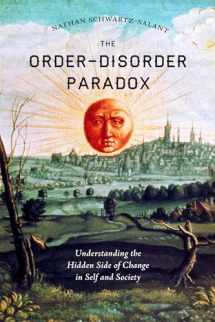
The Order-Disorder Paradox: Understanding the Hidden Side of Change in Self and Society
Book details
Summary
Description
Increasing order in a system also creates disorder: this seemingly paradoxical idea has deep roots in early cultures throughout the world, but it has been largely lost in our modern lives as we push for increasing systematization in our world and in our personal lives. Drawing on nearly five decades of research as well as forty-five years working as a psychoanalyst, Nathan Schwartz-Salant explains that, in a world where vast amounts of order are being created through the growing success of science and technology, the concomitant disorder is having devastating effects upon relationships, society, and the environment. As a Jungian analyst with training in the physical sciences, Schwartz-Salant is uniquely qualified to explore scientific conceptions of energy, information, and entropy alongside their mythical antecedents. He analyzes the possible effects of created disorder, including its negative consequences for the creator of the preceding order as well as its potentially transformative functions. With many examples of the interaction of order and disorder in everyday life and psychotherapy, The Order-Disorder Paradox makes new inroads into our understanding of the wide-ranging consequences of the order we create and its effects on others and the environment.


We would LOVE it if you could help us and other readers by reviewing the book
Book review



